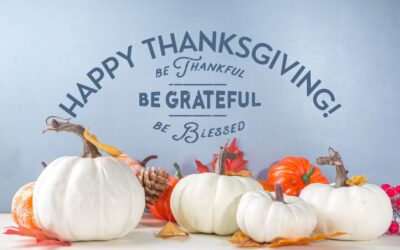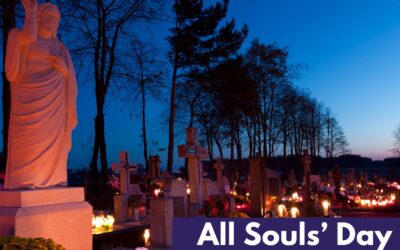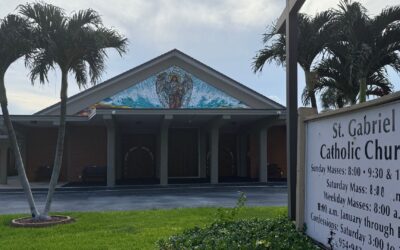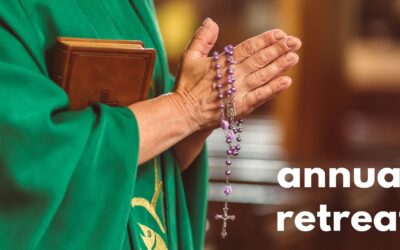Father Nathan Homily | November 08, 2020
Therefore, stay awake,
for you know neither the day nor the hour.”— Matthew 25:13
32nd Sunday in Ordinary Time
Today’s Readings:
First Reading — WIS 6:12-16
Responsorial Psalm — PS 63:2, 3-4, 5-6, 7-8
My soul is thirsting for you, O Lord my God.
Second Reading —1 THES 4:13-18 OR 4:13-14
Gospel Reading — MT 25:1-13
Father Nathan | Homily
The Parable of the Wise and Foolish Bridesmaids
THE APPROACHING END of the liturgical year regularly brings the usual warnings about being prepared. We know that in the very early Church the Christians believed that Christ’s Second Coming and therefore the end of the world would come very soon, even in their lifetime.
By the time the gospels were put in written form, however, this began to seem less likely. Does that mean that the warnings about readiness can be put aside? No… Never at all. Let us try to learn a little more about it.
Jesus began his public ministry in this Gospel with a lengthy discourse that we call the Sermon on the Mount Matthew chapters 5-7) and chapters 23-25 are Jesus’ final discourse (lengthy speech or teaching) in this Gospel. Chapter 26 moves into preparations for Jesus’ crucifixion.
We give special credence to things that people say or do as they prepare to die because a dying person wants to impart some special love or wisdom—something important—before dying. This Judgment Discourse, then, gains significance as Jesus’ dying words to his disciples—the most important wisdom that he could possibly provide them.
The Parable of the Wise and Foolish Bridesmaids (MT 25:1-13) — this Sunday —emphasizes the importance of being prepared for Christ’s coming.
The Parable of the Talents (MT 25:14-30)— next Sunday — emphasizes the importance of being found by Christ at his coming to have been faithful over that with which he has entrusted us.
Symbolic Meaning of the Wedding Tradition
An important part of the wedding ceremony is the procession from the home of the bride’s parents to the couple’s new home. As the bridegroom escorts his bride to their new home, their pathway is lighted by wedding guests holding aloft flaming torches, probably sticks wrapped with oily rags.
A wedding is a great joy for all the members of the community, but especially so for the young women invited to serve as the bride’s attendants. It is an honor to be asked to participate, and those who agree are expected to do so enthusiastically and responsibly.
The allegorical interpretation of the parable:
The virgins represent the Church or Christian community that is waiting for Christ’s Second Coming. The Bridegroom is Christ. The wedding feast is the great and joyous occasion in which Christ comes for his Church (Rv 19:9).
The delay of the Bridegroom corresponds to the delay of the Second Coming or Parousia. The Bridegroom’s arrival in the dark of night is the Second Coming itself. The closing of the door is the final judgment.
Many Old Testament texts also presuppose the imagery of God as Israel’s husband or bridegroom (e.g. Isaiah 54:5; Jeremiah 31:32 Hosea 2:16). The rejection of the foolish maidens is the Last Judgment. Perhaps, the foolish maidens represent Israel and the wise ones the Gentiles.
What does the Parable Mean for us?
So we may need to ask a question to ourselves, what is this parable to us? Or what shall we do while we wait?”
The answer is: “Make sure you have enough oil for your lamps!”
Scripture scholars of the past and the present have reflected on what this oil symbolizes, and they have arrived at different, but related, views.
(i) Perhaps, the best explanation is that the oil stands for our personal relationship with God who is the Source and Power behind our good deeds or “fruit-bearing” (Matthew 3:8, 10; 7:16, 17, 18, 19, 20; 12:33; 13:8, 23, 26; 21:19, 34, 41, 43).
a. It is not something that one can attain overnight or borrow from someone else as the foolish virgins attempted to do.
b. This “state of grace” is something we must receive from God personally and directly.
(ii) In Scripture, oil is often a symbol for the Holy Spirit. It is when we submit our work, our intentions, our purpose to the Holy Spirit that He fills our deeds with power and effectiveness.
(iii) Oil stands for character and Christian values which we cannot borrow – or buy, the foolish virgins’ choice. That metaphor of “oil” refers to the way we do or do not live the virtuous life that God freely empowers us to live. You cannot “borrow” these virtues at the last moment; you must “live” them. These are very sobering words in the Gospel and a reminder that we can never use the excuse that “no one told me.”
(iv) Oil stands for “spiritual capital” (our merits) – all that we build up by good works: concern for the needy and acts of justice.
(v) Perhaps, oil refers to “real” Christian Faith.
(vi) Oil is the spirit of reconciliation with others and a willingness to share our lives and its blessings with others.
(vii) Oil may also be a generic reference to faithful and obedient discipleship as defined by the whole Gospel.
Finally: Wise Christians live each day in the light of Jesus’ vision.
Such people find Him in the most ordinary experiences of daily living — in the people they meet, the events that take place, and the situations in which they find themselves. They carefully make their daily choices for God. They are ready to put the commandment of love into practice by kindness and forgiveness.
Spiritual readiness, preparation, and growth do not just happen.
- They come as a result of intentional habits built into one’s life.
- They come when we habitually take time for prayer and being alone with God.
- They come through reading God’s Word; living a sacramental life; performing acts of service for others; being morally faithful; obeying God with love, and spending time with other Christians for mutual prayer, study, and encouragement.
These are the things which, along with the normal difficulties of life, enable a person to grow in Christ and to be prepared for Christ’s coming. Without these things, we will not be prepared.
Amen.
Have a Blessed Week,
Fr. Nathan
Join our Parish Family
Register in the parish, so that it’s easy to become a confirmation sponsor or Godparent.
Want to Lend a Helping Hand?
Find volunteer opportunities and share your talents.
Need a Helping Hand?
We are here to help. Request home visits, send a prayer request. For urgent needs call 954.943.3684
Set up Online Giving.
You can make a one-time donation or set up recurring gifts.
Past Messages from Father Nathan
From The Desk Of Father Nathan | November 23 2025
As we celebrate Thanksgiving, we lift our hearts in gratitude to the Lord. True thanksgiving flows from recognizing God’s hand in every part of our lives – in times of joy and even in moments of trial.
From The Desk Of Father Nathan | November 02 2025
All Souls Day | November 2nd. Take time to remember deceased family and friends and reflect on the promise of eternal life and the bonds that connect the living and the dead.
From The Desk Of Father Nathan | October 26, 2025
With joy and gratitude, I am pleased to share the wonderful news that the city has officially approved our Church Tower Project! This long-awaited step marks a new chapter in the life of the parish – a visible sign of faith, unity, and hope rising among us. At the same time, we look forward with great anticipation to the Diamond Jubilee…
From The Desk Of Father Nathan | October 19, 2025
I want to inform you that I will be going on my annual priestly retreat this week. This is a time for me to step back from the busyness of daily ministry, to rest in the Lord, and to listen more deeply to His voice in prayer and silence.
From The Desk Of Father Nathan | October 12, 2025
Feast of Our Lady of Fatima | Monday, October 13. —join us for Mass & after we will gather together to pray a special Rosary, which will be offered for the intentions and well-being of our country
From The Desk Of Father Nathan | October 05, 2025
World Mission Sunday | Sun, Oct 19, 2025
—”Missionaries of Hope Among All Peoples”
Growing up as a child is still very fresh in my memory. When I think of the month of October, I think of World Mission Sunday. In my childhood community, there will be lots..





